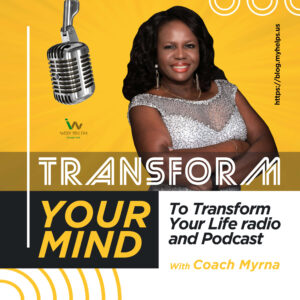It is like the, seed, put in the soil – the more one sows, the greater the harvest. ~~~~Orison Swett Marden
The Law of the Harvest and Seed Planting is one of the Universal Laws.
We are all familiar with the Laws of Gravity. We know that if we jump off a building we will fall to the ground. We know that if an apple rolls off a table it will fall to the ground. Only in space we see things floating around. I was watching a movie recently where someone vomited in space and the vomit well ….you get the picture. It did not fall to the ground!
The, Law of the Harvest, can literally refer to the Power of the, seed. You can’t harvest without first planting a, seed. See an excerpt below on planting and harvesting Lettuce: Lettuce can be started from, seed, or from plants. Some gardeners like to direct, seed, their lettuce but many prefer to start transplants and then move them into the garden after they get off to a good start.
Lettuce, seed, germinates best in moderate to cool temperatures with soil temperatures of 75 degrees being about ideal. The, seeds, are small and flat so some, seed, companies now offer palatalized, seed, for easier more accurate seeding and germination. Lettuce, seed, won’t germinate well if buried too deep so cover them with about 1/4 inch of light sand or screened compost.
Press them lightly on the surface to firm soil or growing media against the seed and then mist them well to thoroughly moisten. One mistake many gardeners make when direct seeding lettuce out in the garden is to not prepare a fine textured, smooth, seed, bed.
Planting Seeds of lettuce
Scattered into chunky, crusty soil lettuce, seed, will seldom make a good stand. Keep the, seeds, moist until they sprout and get off to a good start. If a, seed, dries out at any time during the germination process it will die. If you start, seed, outdoors it helps a lot to place a row cover fabric over the seed row, suspended to prevent the row cover from getting pressed into the soil surface with watering or rains. The row cover helps to keep the, seeds, from drying out quickly in the sun and drying wind. 
Remove the cover to water the, seeds, once or twice a day to keep them moist. Use a mister nozzle on the water hose to prevent blasting the seeds away. Gardeners often tend to plant more lettuce than they need. Think about it. How many heads or plants of leaf lettuce do you eat a week?
Plant enough to last a couple of weeks and a few extras to allow for some that won’t make it. Scatter the seeds one half to an inch apart. It is really easy to plant them too thick. Then when you try to thin the seeds it’s difficult not to do significant damage to the remaining plants. Plant Care Lettuce performs best if you keep it growing well with adequate soil moisture and moderate fertilization. Water transplants in with a dilute solution of soluble fertilizer according to label instructions.
Repeat this application twice weekly for a couple of weeks to ensure the new plants are off to a good start. A light application of dry fertilizer when the plants have been in about two weeks should take them on through their harvest time. Sprinkle one half cup of a 3-1-2 or 4-1-2 ratio fertilizer per 10 foot of planting row. Then lightly scratch it into the surface and water it in well. Lettuce is shallow rooted so avoid deep cultivation.
Stay ahead of weeds so you don’t disturb the lettuce plants later when removing large competing weeds. Light, shallow cultivation is best. You can mulch the best when plants are well on their way. This will also help prevent soil from splashing onto the leaves during rain or irrigation. Problems Lettuce used to be plagued by several diseases that could wipe out plantings.
Most modern varieties have some good resistance built in, but at times during wet periods some fungal rots and mildews may show up. I suggest that should such a problem arise just pull out affected plants and keep the new plantings coming rather than resort to sprays, especially since by the time some rot shows up it is too late to do that plant much good with a spray.
Lettuce is fairly cold hardy and will tolerate light frosts with little to no damage. Young seedlings are more prone to freeze damage. Harvest Head types are best harvested after they develop a firm head. Bibb lettuce is ready to harvest when the plants have reached about their full size and the leaves are just starting to cup inward slightly as if to form a loose head.
Leaf lettuce can be harvested at any time from when you are thinning young plants on. But is it best to either harvest older leaves, leaving the plants to grow for later harvests or cut entire plants out when they reach near full size for the variety. I generally make harvest decisions based on how much other lettuce is coming along for later harvest. If I have plenty on the way I’ll pull more plants when they are younger. If not then I may just harvest outer leaves to get more later on from the older plants. 
The laws of the harvest can be applied to all areas of life.
The Law’s most popular text reference is from the book of Galatians in the Bible which reads, “For whatever a man sows that and that only is what he will reap.” Most people are inclined to ask the “why” question when things happen to them. In most instances the answer is found in this law. You are simply reaping the harvests of what you have previously sown.
Whenever you get results you do not desire, begin to interrogate what kind of, seeds, you have been planting. From the lettuce illustration above; if you plant lettuce, seeds, you will not reap or harvest cabbage. Thus the reference that you always, reap what you sow!
The reason why some probably do not have happiness is because they don’t sow happiness. When you sow strife you reap strife. This is why it is necessary to carefully analyze what seeds you plant in your relationships, be it with your friends, family, or business associates.
The quality of that relationship is solely premised on the, seeds, you plant with your actions and words. If you plant mistrust, you will reap mistrust. One of the best advice I have every received on seed planting in relationships was “treat your marriage and relationships like a bank account, you have to make more deposits than withdrawals or you become overdrawn”.
Every time you give of yourself or serve another, you are planting seeds that will grow into a harvest. I believe that even if you are planting into a relationship now that does not bear fruit, you will still harvest in another relationship or in your job or in your children! So keep planting.
Another, law of the harvest, is that you will reap according to the measure that you sow. The Law states that: “He who sows sparingly and grudgingly will also reap sparingly and grudgingly and he who sows generously will also reap generously and with blessings.”
Once you have identified the kind of harvest you desire, it is important to realize that again you determine the amount of harvest you receive with the amount of, seed, you plant. In the illustration above the farmer planted much more, seed, than was necessary for the harvest because he knew that some will die, either from decease, from thinning, or from rocky soil.
If the, seed, you are planting is for the, harvest, of a promotion then you have to work harder than the rest and stand out. If the, seed, you are planting is to harvest a spouse, then you have to plant trust, service, love, affection, stability, and much more, seeds, than the other suitors. 
We Reap In Proportion to What We Sow
The promise and warning of Scripture is that we reap what we sow. This means that life’s choices are filled with consequences both good and bad — Reaping what we sow means we reap only what has been sown, we reap in kind as we sow, we reap in a different season than we sow, we reap more than we sow, but we also reap in proportion to what we sow.
We Reap More Than We Sow
No fact is more significant and sobering than this one. When we sow good, we bountifully receive from the hand of God who is debtor to no man; for the harvest is always greater than the seed planted. If this were not the case, no farmer would ever plant a thing; if he only got back what germinated in the ground.
He would be on the losing end and spend his life in utter futility. Reaping more than we sow is fundamental to the Laws of the Harvest and this is not just true for the agricultural world, it is true for nearly every aspect of life: for the physical and the spiritual, for believers and unbelievers alike. This law works in reverse as well. When we sow evil, we will generally reap more evil than we sowed as well.
Just knowing these alone alone is not enough! Application of the Laws and conforming to them will always give the expected result.
Some people are in the habit of expecting way too much than what they give in. A salesperson who does not do the activity of calling on customers or engaging in the sales activity; but who hopes to get lucky by customers falling in his or her lap soon finds out that the, Law of the Harvest, is finite.
“You can’t reap what you don’t plant” Only miracles supersede and defy these laws. The effort you put in determines the outcome you receive. Always! Another law is that the harvest follows planting and not vice versa. Some people are naïve to say the least. They expect to reap first then they harvest. That is absurd.
You first sow then you reap. How miraculous would it be that you find a field of lettuce and no one planted any, seeds, or seedlings? I would bet that you would not eat that lettuce because you would be suspicious of where it came from. So expecting the rewards before you do the work is ludicrous. You have to plant the seed, you have to water every day, you have to fertilize, you have to make sure the plants get sunlight, you have to protect from pests; only then you can taste the sweetness of the harvest.
Are you eating your seed?
Most average and poor people are guilty of this statement, “we don’t give because we don’t have.” The reality is the opposite however; you don’t have because you don’t give. Someone told me a great analogy once at a party. “If your hands are closed, then not only can you not give, but you also cannot receive” so make sure your hand is open to give and to receive.
Everyone has a seed which will take them to a next level of plenty (with regard to the seed sown). The problem is most people think they should have plenty in order to plant. That is why some people need thousands to start a business while some can start from just a few dollars. I read about a lady who borrowed $3000.00 from family and friends to start her own business as a pottery consultant. I don’t remember the name of her company but she purchased pots and pans and taught people how to cook in those pots and pans. She had just sold her Company to Warren Buffet for 900 million! God can do a lot with very little!
The last Law of Harvests I will share states that, “There is always a time interval between planting and harvesting.”
You sow in a different season from the one you reap in. Most people cannot endure the season of waiting for the, harvest, which is why they do not plant at all. They seek instant gratification so they would rather eat the seed, rather than plant it and wait for the harvest. They do something today and expect results tomorrow.
There is nothing like that! You can’t circumvent the, Law of the Harvest! You miss or eliminate a step and you get no lettuce or fruit. If you decide that to plant and not water, your seedlings will die. If you start watering and caring for the soil and there is no seed planted you reap nice dirt!
You have to plant, water, protect and wait for the, harvest. You plant your, seed, in the spring and harvest in the summer or fall. Remember that for everything you need in life, there is a seed that you can plant. Everything that you have ever wanted in your life can be planted and you will begin to enjoy the benefits of the laws of harvests.
If you plant nothing you reap nothing. Start planting the, seeds, that give you the results you require. Remember if you eat your, seed, there can be no, harvest. Everyone has something they can plant!
These laws can be applied to your Academics, Spiritual life, Finances, Relationships, Career, Business and anywhere else you desire to see results.
Myrna Morris Young is a Spiritual Life and Executive Leadership Coach And President and CEO of Myhelps Inc. You can reach her by Phone: 954-999-6125 by Skype at Myrna.Young.3 Or by Email:[email protected] Web: https://myhelps.us She is also the Author: “Becoming Conscious, My Awakening”










